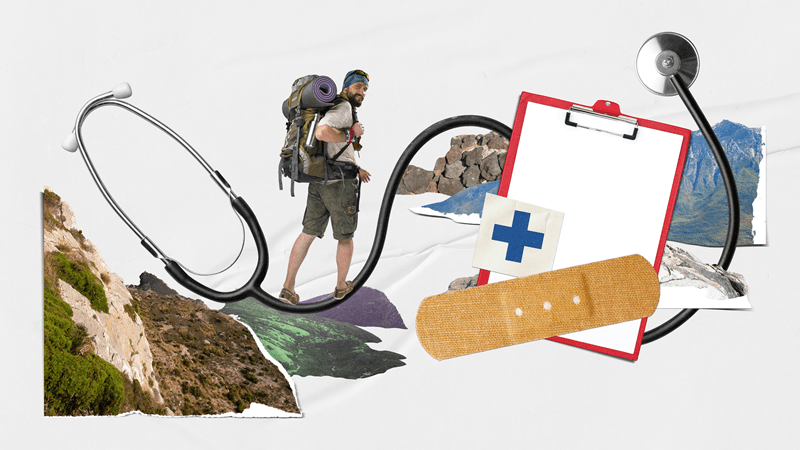Tips To Find the Best Travel Medical Insurance Ideal For You
Tips To Find the Best Travel Medical Insurance Ideal For You


Traveling is an exciting and enriching experience, but it comes with its share of risks, especially when it comes to health. Accidents, illnesses, and unexpected medical expenses can disrupt your travel plans and financial stability. To mitigate these risks, it's crucial to find the best travel medical insurance in the United States. This comprehensive guide will walk you through the process of selecting the most suitable coverage for your needs, ensuring a worry-free and enjoyable journey.
Assess Your Travel Needs
The first step in finding the best travel medical insurance is to assess your specific needs. Different countries have varying healthcare standards and costs. Research the healthcare system and potential risks at your destination. Determine the length of your trip, as insurance plans often have maximum coverage periods.
If you have pre-existing medical conditions, ensure the policy covers them. If you plan to engage in adventurous or high-risk activities, like skiing or scuba diving, ensure your policy includes coverage for these. Set a budget for insurance, taking into account the cost of the trip and the level of coverage you require.
Understand Different Types of Travel Insurance
There are various types of travel insurance, but for medical coverage, the main options include:
a. Travel Medical Insurance: This type of insurance provides coverage for medical emergencies and expenses during your trip.
b. Travel Health Insurance: Similar to travel medical insurance, this option also covers medical expenses but may offer additional benefits like evacuation coverage.
c. Comprehensive Travel Insurance: This includes both medical coverage and other benefits such as trip cancellation, lost luggage, and travel delay coverage.
Check Your Existing Insurance
Before purchasing additional travel medical insurance, review your existing insurance policies, including health, homeowner's, and credit card insurance.
Some of these may offer limited coverage for medical emergencies abroad. Knowing your current coverage can help you determine if you need supplementary travel medical insurance.
Research and Compare Providers
To find the best travel medical insurance, research reputable insurance providers. Some well-known companies offering travel insurance include Allianz, AIG Travel Guard, and Travelers.
Look for providers with a strong financial rating, good customer reviews, and a track record of honoring claims.
Read Policy Details Carefully
Once you've shortlisted potential providers, carefully read the policy details. Pay attention to the following key factors:
a. Coverage Limits: Check the maximum coverage limits for medical expenses, evacuation, and other benefits. Ensure they meet your needs.
b. Deductibles: Understand the deductible amount you must pay before the insurance kicks in.
c. Inclusions and Exclusions: Review what's covered and what's excluded. Look for pre-existing condition coverage, trip cancellation, and adventure sports coverage if needed.
d. Network of Hospitals: Find out if the insurance provider has a network of hospitals or if you can visit any medical facility.
e. Repatriation Coverage: Ensure the policy includes repatriation coverage, which pays for your return to the US in case of a severe medical emergency.
f. Emergency Assistance: Confirm if the insurance offers 24/7 emergency assistance and a helpline for immediate help.
g. Policy Length: Ensure the policy covers the entire duration of your trip.
Seek Recommendations
Consult with friends, family, or fellow travelers who have purchased travel medical insurance before. Their experiences and recommendations can be valuable in making an informed decision.
Compare Quotes
Request quotes from multiple insurance providers to compare prices and coverage. Online comparison tools can simplify this process and help you identify the most cost-effective option that meets your needs.
Consider Add-Ons
Depending on your travel plans, consider additional coverage options such as:
a. Trip Cancellation Insurance: Protects your investment in case you need to cancel your trip due to unforeseen events.
b. Baggage and Personal Belongings Insurance: Covers lost, stolen, or damaged luggage and belongings.
c. Adventure Sports Coverage: For travelers engaging in activities like skiing, scuba diving, or hiking.
d. Cancel for Any Reason (CFAR) Coverage: Cancel for Any Reason insurance offers more flexibility in trip cancellation reasons.
Review Travel Advisories
Check the US Department of State's website for travel advisories and recommendations for your destination. This information can help you assess potential risks and plan accordingly.
Purchase the Policy
Once you've thoroughly researched, compared quotes, and selected the best travel medical insurance for your needs, complete the purchase. Ensure you have a copy of your policy and contact information for the insurance provider while traveling.
Keep Documentation Handy
Before departing, make copies of your insurance policy, including contact information and claim procedures. Store these documents in a safe place along with your passport, visa, and other essential travel documents.
Stay Informed During Your Trip
Stay informed about your coverage and the procedures for filing a claim while traveling. In case of a medical emergency, contact your insurance provider as soon as possible for guidance and assistance.
Conclusion
Traveling should be a joyful and memorable experience, and finding the best travel medical insurance in the US can significantly contribute to your peace of mind. By carefully assessing your needs, researching providers, and understanding policy details, you can ensure that you are adequately covered in case of unforeseen medical emergencies while exploring the world. Remember, preparation is the key to a safe and enjoyable journey, and proper travel medical insurance is an essential part of that preparation.
This content was created by AI



